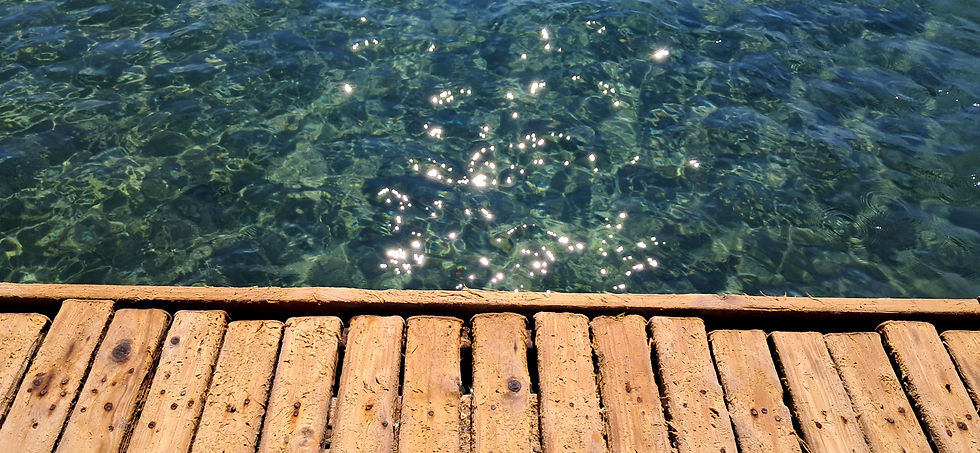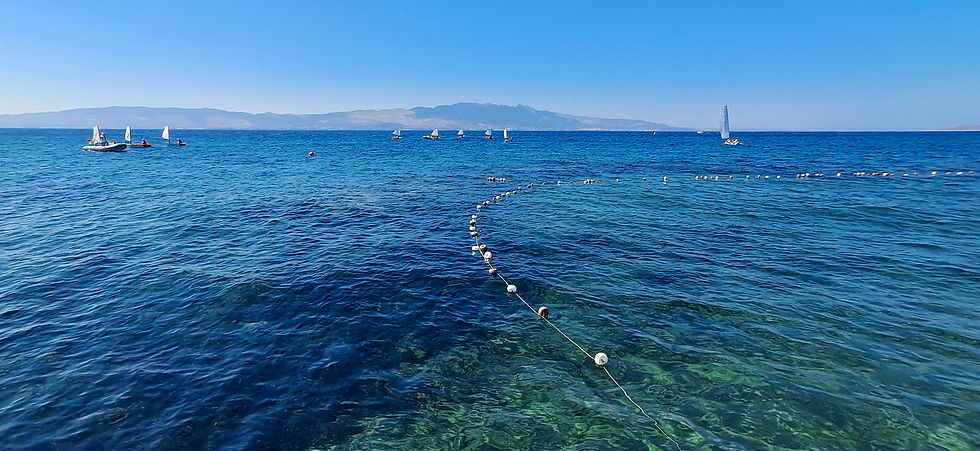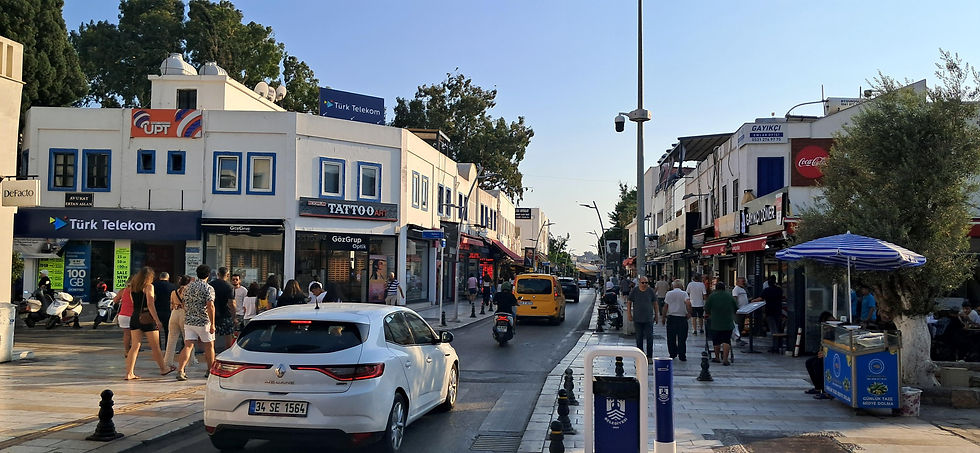Bodrum: Ancient Wonders and Modern Charm
- brightsunnymorning9
- Aug 20, 2025
- 4 min read
On the coast of the Aegean Sea lies a beautiful city that I had the chance to visit for the first time with my family in August 2025.

In ancient Greece, it was known as Halicarnassus, the place where Mausolus built his magnificent tomb – one of the Seven Wonders of the Ancient World. It is also the birthplace of Herodotus, the “Father of History.”
Today, this city has become a famous tourist and yachting center. Of course, I’m talking about Bodrum, located on the Bodrum Peninsula, directly across from the Greek island of Kos. Naturally, during our stay, we couldn’t resist taking a trip to Kos – but more on that in a separate post.
We didn’t visit the beaches in Bodrum, as we focused on exploring the city, visiting Kos, and doing some shopping – something our daughter insisted on – so we dedicated one day to thoroughly “exploring” the Midtown Shopping Center. We stayed in a hotel about twenty kilometers from the city itself, in a place called Akyarlar, and we spent some relaxing time on the hotel beach.

Akyarlar hotel beach

Akyarlar hotel beach

Akyarlar hotel beach

Streets of Bodrum
Bodrum is one of Turkey’s most popular holiday destinations, thanks to its stunning coastline and vibrant nightlife. Every year, several hundred thousand visitors are drawn here. Its charming streets, lined with shops, galleries, cafés, and authentic restaurants, invite you to stroll and explore.

Streets of Bodrum

Streets of Bodrum
The houses, mostly painted white in the Aegean style, often feature blue windows and doors. In Mediterranean tradition, blue symbolizes the sea and the sky, but it is also believed to protect against the “evil eye” and negative energy. This is why blue shades are such a prominent feature of Bodrum’s architecture. The style resembles that of many Greek islands, which makes sense given that Bodrum was historically part of the wider Aegean cultural sphere, where Greek and Anatolian traditions have always intersected.
One of Bodrum’s notable landmarks is the Adliye Mosque in Cumhuriyet Square, built in 1901 from cut stone with a rectangular layout and topped with a traditional wooden roof.

Adliye Mosque

Adliye Mosque
In the heart of Bodrum, right by the harbor, rises the city’s most iconic monument – the Bodrum Castle (Castle of St. Peter). Built in the early 15th century by the Knights of St. John (who constructed similar fortresses on Rhodes and Kos before later becoming the Knights of Malta), the castle is remarkable both in scale and history. The knights used stones and materials from the ruins of the Mausoleum at Halicarnassus, which had been severely damaged by earthquakes between the 12th and 15th centuries. Over the centuries, particularly under Ottoman rule, the fortress underwent numerous restorations. Today, it is a must-see for anyone interested in medieval history and architecture. Inside, it houses the Museum of Underwater Archaeology, the only one of its kind in Turkey, with more than 17,000 artifacts, including amphorae, clay objects, gold coins, and treasures recovered from shipwrecks in the Aegean Sea.

The statue in front of Bodrum Castle features Cevat Şakir Kabaağaçlı, known by his literary name Halikarnas Balıkçısı (‘The Fisherman of Halicarnassus’), a Turkish writer and thinker who dedicated much of his life to Bodrum and to promoting its culture and history.

Bodrum Castle
Mausolus, the ruler of Caria in Asia Minor from 377 to 353 BC, is remembered for commissioning the magnificent tomb in Halicarnassus, later called the Mausoleum.

Mausolus, the ruler of Caria
Following the custom of Eastern monarchs, he was married to his sister, Artemisia, who succeeded him as ruler after his death.

Artemisia

Streets of Bodrum
Today’s Bodrum offers plenty of modern attractions.
Bodrum Marina is perfect for a seaside stroll among cafés, restaurants, and luxury yachts.

Bodrum Marina

Bodrum Marina
At the same time, the Bodrum Bazaar, located just behind it, is filled with stalls selling local products, spices, clothing, and souvenirs.

Bodrum Bazaar
What makes Bodrum especially unique is the presence of art in everyday life. Even maintenance hole covers are decorated, making the streets resemble an open-air gallery. One of the most distinctive symbols you’ll notice everywhere is the Nazar (Blue Eye) – a traditional talisman believed to ward off envy and negative energy. People wear it as jewelry, hang it in their homes and cars, and in Bodrum, it’s even embedded in cobblestones and mosaics. These mosaics continue the city’s ancient tradition, echoing Halicarnassus and Roman villas, where marine motifs such as dolphins and fish symbolized luck, safety, and a connection with the sea.

Art in everyday life

Art in everyday life

Art in everyday life
Tucked away in the old part of Bodrum are the ruins of the Aya Nikola Church (Church of St. Nicholas) – an important reminder of the city’s Greek heritage. Dedicated to St. Nicholas, the patron saint of sailors, it is especially fitting in a town with such a long maritime tradition. Built in the 17th century as a Greek Orthodox church, today only parts of its walls and interior remain. Though in ruins, it continues to attract visitors with its special atmosphere and as a reminder of Bodrum’s layered history shaped over centuries by different cultures and religions.

Ruins of the Aya Nikola Church (Church of St. Nicholas)
Bodrum is a city where history, culture, and the sea come together to create an unforgettable experience.



Comments